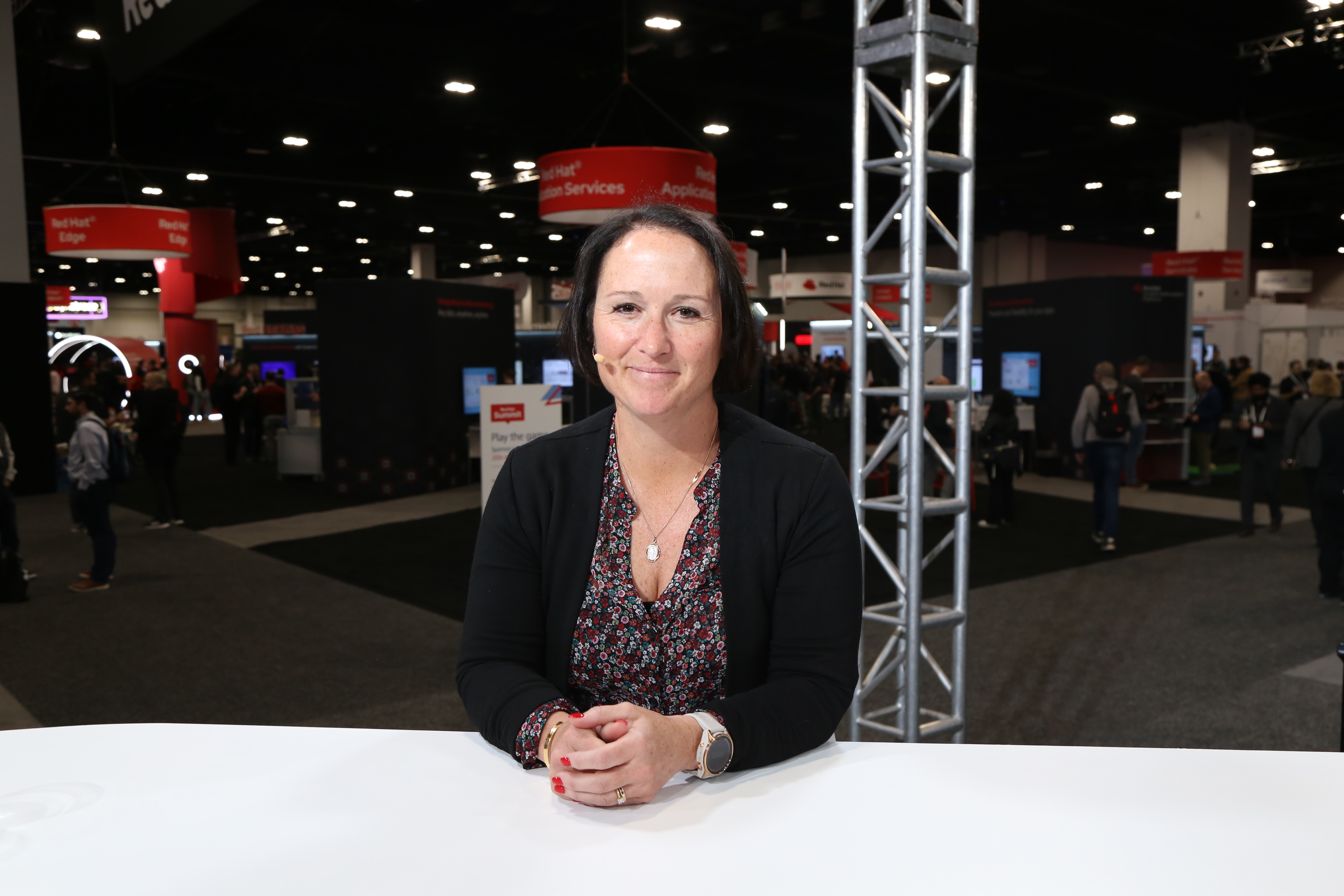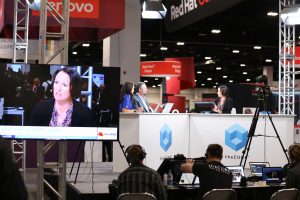 AI
AI
 AI
AI
 AI
AI
Amid the buzz around artificial intelligence, one issue that often falls to the wayside is sustainability, with GPUs for large language models requiring a ton of energy and resources.
“It really has been the elephant in the room for some time, and there’s been a huge gap within the software ecosystem in the communities really to address what we’re looking at here,” said Erin Boyd (pictured), distinguished engineer and director of emerging technologies at Red Hat Inc. “AI has just accelerated the need to look at how we’re using our resources responsibly along with secure supply chain constraints.”
Boyd spoke with theCUBE Research’s Rebecca Knight and Rob Strechay at Red Hat Summit, during an exclusive broadcast on theCUBE, SiliconANGLE Media’s livestreaming studio. They discussed how Red Hat is approaching AI’s environmental impact, as well as cybersecurity. (* Disclosure below.)

Red Hat’s Erin Boyd talks about the trend toward smaller, more purpose-built AI models on the set of theCUBE at RHS 2024.
The trend toward customized AI models could lead to more environmentally sound solutions, according to Boyd. With Red Hat’s Project Kepler, companies can monitor their energy consumption while using Climatic, formerly Clever, to make decisions based on those metrics.
“We’re going to start seeing smaller models and really purpose-built for business needs. But even beyond that, running those on the edge. We can’t run a large model on the edge,” Boyd said. “For a lot of our customers, it’s really important both from an efficiency and a data privacy point of view that we can then change these models so they could actually run on a very small form-fit device, maybe even a CPU.”
Another way in which Red Hat is looking to prepare its customers for the AI era is security. Having AI models that are verified and secure, especially when proprietary data is involved, is a big point of concern, Boyd explained.
“Zero trust is not something that is a product,” she said. “You can’t just deploy this and it suddenly makes everything within your ecosystem work correctly. So, within emerging technologies, we’re really looking at zero trust all the way down to a hardware bill of materials all the way up to the application.”
Here’s the complete video interview, part of SiliconANGLE’s and theCUBE Research’s coverage of Red Hat Summit:
(* Disclosure: Red Hat Inc sponsored this segment of theCUBE. Neither Red Hat nor other sponsors have editorial control over content on theCUBE or SiliconANGLE.)
Support our mission to keep content open and free by engaging with theCUBE community. Join theCUBE’s Alumni Trust Network, where technology leaders connect, share intelligence and create opportunities.
Founded by tech visionaries John Furrier and Dave Vellante, SiliconANGLE Media has built a dynamic ecosystem of industry-leading digital media brands that reach 15+ million elite tech professionals. Our new proprietary theCUBE AI Video Cloud is breaking ground in audience interaction, leveraging theCUBEai.com neural network to help technology companies make data-driven decisions and stay at the forefront of industry conversations.